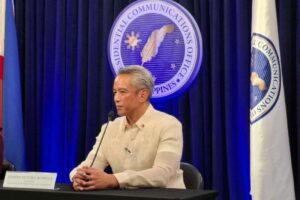MANILA, Philippines—The Department of the Interior and Local Government (DILG) has launched an investigation into twenty-four local government officials, most of whom are mayors, for leaving the country between November 9 and 15, 2025, despite a directive to cancel or postpone foreign travel due to the impending threat and onslaught of Super Typhoon “Uwan” (International name: Hung Fong/Fung-wong).

Interior Secretary Jonvic Remulla confirmed the investigation, emphasizing that these officials must explain their decision to depart despite “clear-cut guidelines” and their moral obligation to be present for their constituents.
“Twenty-four local chief executives are currently under investigation. They departed between November 9 and 15, despite the directive,” Remulla said in a radio interview. “That’s what they need to explain. The guidelines are clear-cut. If they had asked the local DILG—which they probably didn’t—they would have been told the requirements.”
The DILG Directive and Moral Duty
The DILG issued a clear order on November 8, directing all elective and appointive local officials to cancel or suspend their foreign trips from November 9 to 15, 2025, to ensure their presence on the ground. This directive was issued as the country prepared for the expected impact of Super Typhoon Uwan, which was a “maximum scale” disaster that forced over a million people to evacuate and was classified as the strongest storm category in the Philippines.
Remulla stressed that beyond the formal directive, local officials have a fundamental “moral duty” to be aware of and prepared for a major approaching storm.
“We all watch the news, we all read the papers, and we all see what’s on the internet. We all know something’s coming, right?” Remulla argued, highlighting that the cyclone’s approach was widely publicized.
The DILG’s policy is anchored in both the Local Government Code of 1991 and the Philippine Disaster Risk Reduction and Management Act (RA 10121), which explicitly task local chief executives to be “physically present during all phases of disaster management”—preparation, response, and recovery. Visible, hands-on leadership is deemed crucial in safeguarding communities, maintaining order, and ensuring swift relief operations.
Exemptions and Potential Sanctions
The investigation focuses specifically on those who left after the travel ban took effect on November 9. Remulla noted that the trips of two governors from the Cagayan Valley are not covered by the investigation because they asked for permission and departed on November 8, before the official directive was issued.
However, for the 24 officials who defied the ban, the DILG is studying possible criminal and administrative sanctions, including charges of gross negligence, gross insubordination, and abandonment of post. This action comes in response to significant public anger and frustration over reports of officials being absent while communities were heavily damaged by Uwan and the preceding Typhoon Tino.
Malacañang has also weighed in, stating that the reports will be evaluated to determine if the officials’ absence “really affected the prompt action for our countrymen who experienced the devastation brought by the typhoon,” deferring to the DILG to determine the appropriate disciplinary measures.
The DILG’s firm stance serves as a reminder to all local officials that during times of crisis, public welfare and on-the-ground leadership must take precedence over personal or even pre-scheduled official foreign commitments.





